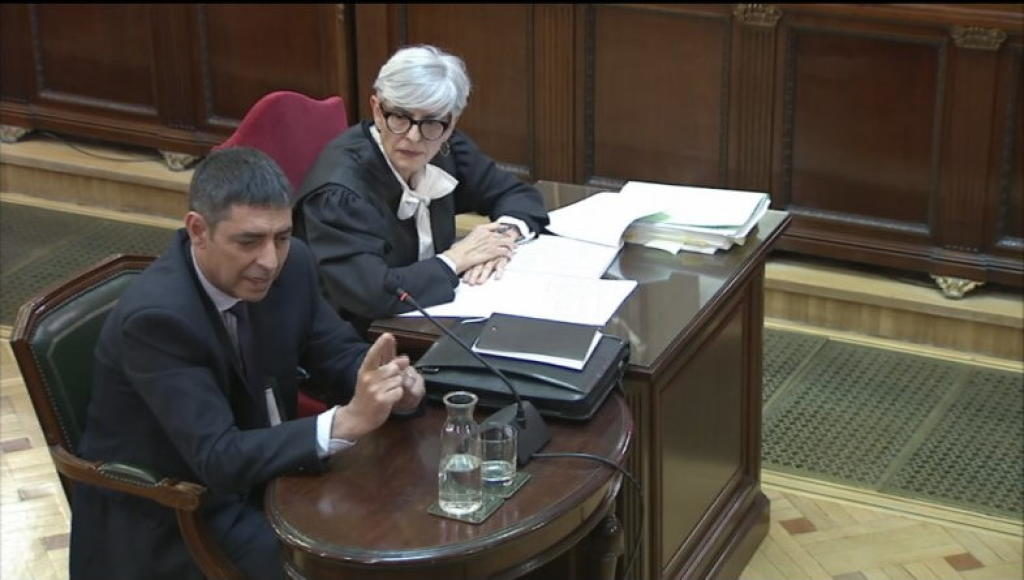14.03.2019 - 16:22
|
Actualització: 14.03.2019 - 17:22
Catalonia’s former police chief Josep Lluís Trapero has refuted accusations that the law enforcement agency facilitated holding the independence referendum on October 1, 2017, and stressed that they always complied with Spanish judicial orders to stop the vote. “The Catalan police operation had no objective other than complying with court orders, said Trapero in Spain’s Supreme Court on Thursday, speaking as a witness in the trial against politicians and activists involved in the 2017 independence bid.
Trapero is one of the most highly anticipated witnesses in the trial, as he was the head of Catalonia’s own police body (known as the Mossos d’Esquadra) until the Spanish government took over Catalan institutions following a declaration of independence and imposed direct rule from Madrid.
Accused of rebellion—as are most defendants in the Catalan trial—Trapero faces an 11-year prison sentence, requested by the public prosecutor. His case is being handled in a separate court, and he therefore accepted to appear in the Supreme Court as a witness.
Accused of inaction
Trapero’s name had already emerged on a number of occasions during the trial, with the colonel appointed to coordinate Catalan and Spanish police bodies during the referendum, Diego Pérez de los Cobos, accusing Trapero of not doing enough to stop the vote. Trapero admitted to there having been “tensions” with De los Cobos, claiming they had different criteria regarding the use of force. Some 1,066 people were ultimately injured by Spanish police attempts to disrupt the referendum, according to Catalan government figures.
While De los Cobos claimed that Spanish police only intervened after realizing that the Mossos “had no intention to stop the vote”, Trapero defended that Catalan police actions were part of a broader operation also encompassing Spanish law enforcement, which the latter took the lead in dealing with security issues.
In his testimony as one of the accused, former interior minister Joaquim Forn stressed that while he defended the referendum as a member of the Catalan government, he never told Trapero to disobey court orders.
Controversy
Trapero confirmed his former superior’s account of the facts. Yet, he acknowledged that some comments Forn made ahead of the referendum—for instance, he famously claimed that the Mossos would allow the vote to take place—made him “uncomfortable” and deemed them as “irresponsible.”
Former top Catalan police officials, such as Manel Castellví and Emilio Quevedo, have also given testimony in the trial, closing ranks in defense of Trapero and the Mossos, and even declaring that the former chief called on the Catalan government to call off the vote.
This is talked of as an opportunity for Trapero to explain his actions during the political crisis before he goes to trial in the National Court, the date for which still has to be announced.


